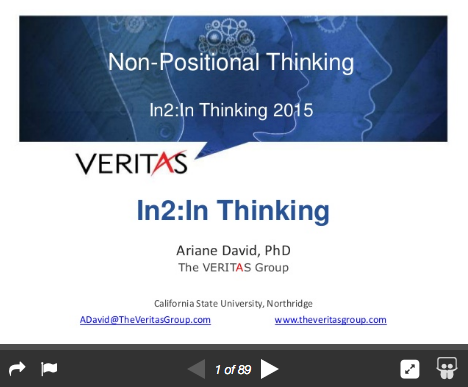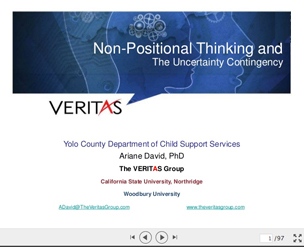How Groupthink Sacked Penn State
![]() Shock and disbelief is everywhere about the story that has upstaged the Syrian civil war, the Republican debates, Iran’s emerging nuclear capability, the EU’s struggle to be solvent: the Penn State’s pedophilia scandal.
Shock and disbelief is everywhere about the story that has upstaged the Syrian civil war, the Republican debates, Iran’s emerging nuclear capability, the EU’s struggle to be solvent: the Penn State’s pedophilia scandal.
I have to admit to not being a football aficionado. While I can calculate the trajectory of the football to any part of the field, I’m usually more interested in the relationships among players and coaches than the location of the football. In general I don’t think about it much when I’m not watching. And yet, the Penn State pedophilia scandal has me thinking.
How Could This Have Happened?
I’m seeing a lot of puzzlement about how this could have happened, a lot of looking for the culprit, and a lot of people distancing themselves from the blame. People are scared that as the stain grows the small part they played or should have played, their inaction or their tacit support for the people involved will drag them into the legal pit, and worse, disgrace.
I predict that the problem will prove to be far more complex than simply a pedophile, his victims, and his witting or unwitting accomplices. Over the coming months and even years the issue will be researched and commented on countless times. Psychologists, sociologists, criminologists, sports experts and even anthropologists will give their opinions.
New Rules and Regulations Will Be Prepared
Reports will be prepared, and like Sarbanes Oxley after Enron, new legislation and regulatory guidelines will be implemented to prevent future breakdowns in conduct between sports staff and children. The guidelines will likely extend to non-sports situations involving children and adults, and for a while all such situations will be suspect.
 I also predict that these new rules will not resolve the problem. The reason is that the Penn State problem is a symptom, not a cause. If we learned anything from Enron it should be that legislation solves very few problems if the underlying causes of the problem are not addressed. They were not in Enron’s case, and, in fact, rarely are.
I also predict that these new rules will not resolve the problem. The reason is that the Penn State problem is a symptom, not a cause. If we learned anything from Enron it should be that legislation solves very few problems if the underlying causes of the problem are not addressed. They were not in Enron’s case, and, in fact, rarely are.
These New Rules and Regulations Will Not Work
Invariably, the problem shows up again, under different guise perhaps, but show up it does. While Enron’s specific brand of peccadilloes have been banned through legislation, primarily Sarbanes Oxley, this legislation did nothing to prevent the latest example of mega-lapses in economic ethics in the form of the current Wall Street debacle, just different enough from Enron to make us think it is a whole new problem. In reality, though, it is indicative of a deeper systemic dysfunction in the ethical underpinnings of our economic system.
In the case of the Penn State scandal (this seems like way too small a word for the horror it represents), there will be investigations, firings, and indictments. Blame will fly in every direction. Finally, there will be a veritable mycelium of regulations, laws and guidelines. But history has shown us that this problem will happen again, not necessarily in the same form, but in the form of some kind of ethical outages covered up to protect powerful people, groups and private interests.
How Could So Many People Have Behaved So Badly?
 Joe Paterno was a guy with a reputation as a stellar football coach and a decent man. I suspect that Spanier and McQueary and the people yet to be implicated are equally decent, and yet these good people made conscious decisions that led to terrible outcomes. How could so many people have behaved so badly? The answer will not be found in a rigid examination of isolated individuals or in ferreting out and blaming the culprits. The clue lies in the question itself: “How could so many people….?
Joe Paterno was a guy with a reputation as a stellar football coach and a decent man. I suspect that Spanier and McQueary and the people yet to be implicated are equally decent, and yet these good people made conscious decisions that led to terrible outcomes. How could so many people have behaved so badly? The answer will not be found in a rigid examination of isolated individuals or in ferreting out and blaming the culprits. The clue lies in the question itself: “How could so many people….?
In order to understand the conditions that brought about the Penn State problem, we have to understand the system within which the people involved functioned. Power results when a person or group controls a resource that is both highly desirable and scarce, in this case money. The football department at Penn State is powerful not because people love football above history or journalism or women’s basketball, but because it controls the largest donations to the school. The university has a very great interest in protecting the football department even at the expense of the students and the community, because it must protect its vital and vast financial interests.
This is Not a Football Problem
 This made Joe Paterno the most powerful person at Penn State. It also made the football department the most desirable place to be. But unlike Disneyland, which is also a desirable place to be, the football department at Penn State is an elite organization. Membership in the group is difficult to obtain and is open to only a very few. While a lot has been written about the culture of college football programs -they are violent, paternalistic, hierarchical, and militaristic – I do not see this as a football problem. Rather this is a problem having to do with the dynamics of highly cohesive groups: the Penn State football department has fallen victim to its own elitism, and it is called “groupthink”.
This made Joe Paterno the most powerful person at Penn State. It also made the football department the most desirable place to be. But unlike Disneyland, which is also a desirable place to be, the football department at Penn State is an elite organization. Membership in the group is difficult to obtain and is open to only a very few. While a lot has been written about the culture of college football programs -they are violent, paternalistic, hierarchical, and militaristic – I do not see this as a football problem. Rather this is a problem having to do with the dynamics of highly cohesive groups: the Penn State football department has fallen victim to its own elitism, and it is called “groupthink”.
Groupthink
Groupthink is a phenomenon that occurs in deeply cohesive groups where membership in the group is highly coveted and difficult to obtain. People vie for admittance and once in, express an almost slavish loyalty to the group and its leaders. To step outside the rules of the group would be to risk the unthinkable: banishment. Most members do not take the risk, and so, in their desire to remain desirable to the group, members act in ways that might otherwise be foreign and even contrary to their values.
Groupthink’s Master Identity
Where there is groupthink members tend to make membership in the group a master identity and place the good of the group above anything outside of it. Anything that happens in the group has first and foremost to serve the needs of the group and its members. To the members of the Penn State football elite, survival of their insular unit was more important than the safety of the victims, since they, the victims, were outside the group and their very presence posed a threat to the group. I cannot help but wonder (actually I am pretty sure I know) what would have happened if the victim in the shower with Sandusky was Paterno’s grandson or the son of a member of the group. We can conjecture that the outcome would have been very different.
Groupthink Allows the Unthinkable
This gives us a little insight into McQueary’s actions. McQueary was a young graduate assistant newly accepted into the coveted and closed ranks of the football coaching circle. He was a fervent, loyal and submissive member. He was also deeply disturbed by what he saw, but given the groupthink that saturated the department, it would have been unthinkable and a grave breach of loyalty for him to go directly to the police. So he went to Joe Paterno, the patriarch of the group, instead and dutifully left the matter in his hands.
As for Joe Paterno, he says he regrets not doing more. Did he not do more because he was just too busy to think about it? Was he simply out of the university decision-making loop and so put it out of his mind? Did he actually know what was going on and followed what he considered to be the bare letter of the law, throwing out what he might have known to be the moral thing to do? Did he answer to a “higher power”, one that required a crasser and more slavish loyalty than did the victimized children?
There will be investigations and inquests and it is important that we do not judge him before the evidence is in. All we will ever know is whether Joe Paterno has been found innocent or guilty according to the standards of the law; we will never know whether he acted in an ethical, moral and humane way according to his own standards. What we can surmise is that he acted according to the standards of the Penn State Football Department and groupthink.
Visit SlideShare for a downloadable Presentation of “How Groupthink Sacked Penn State”


